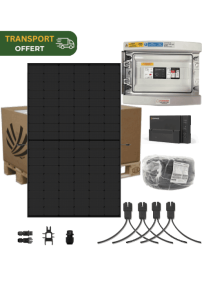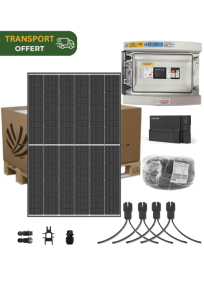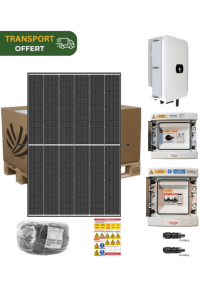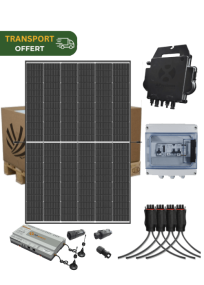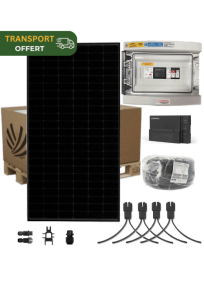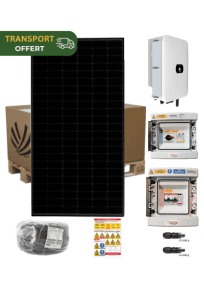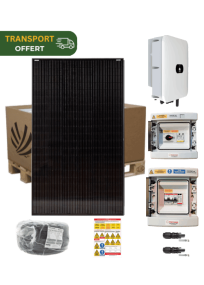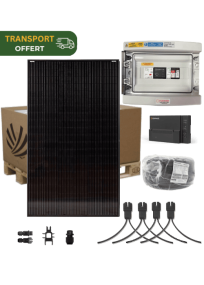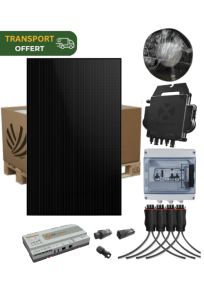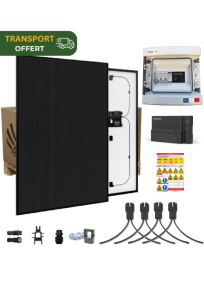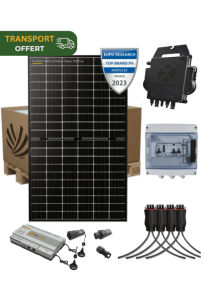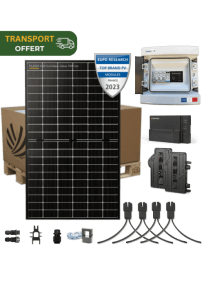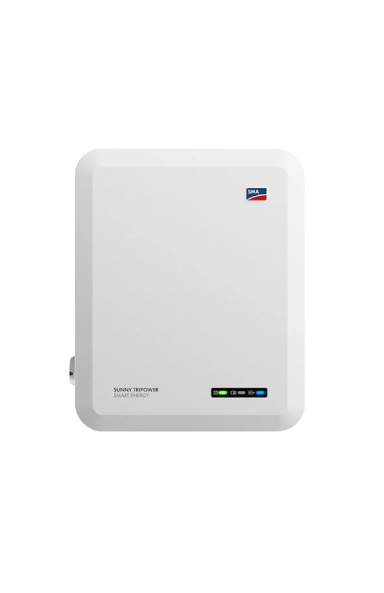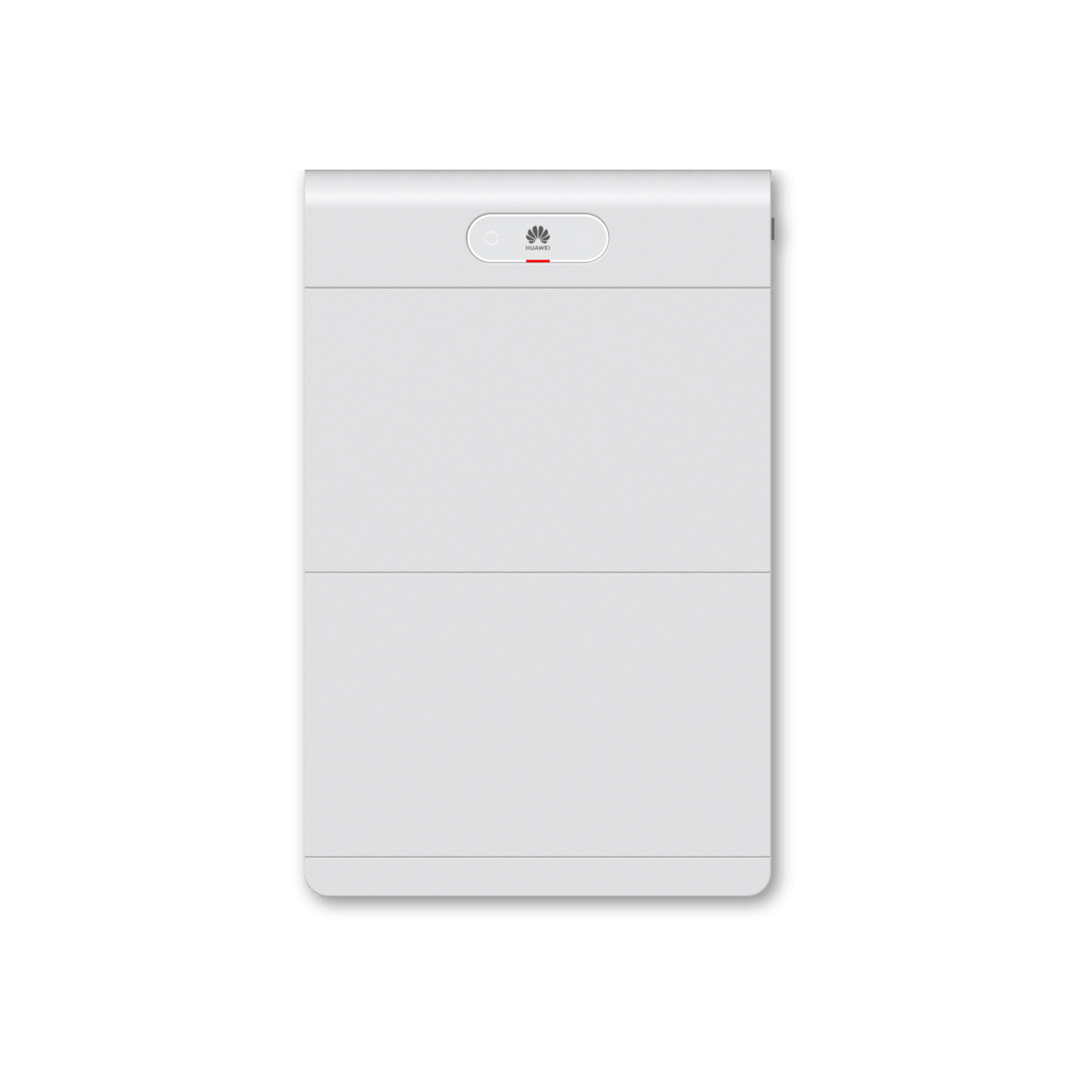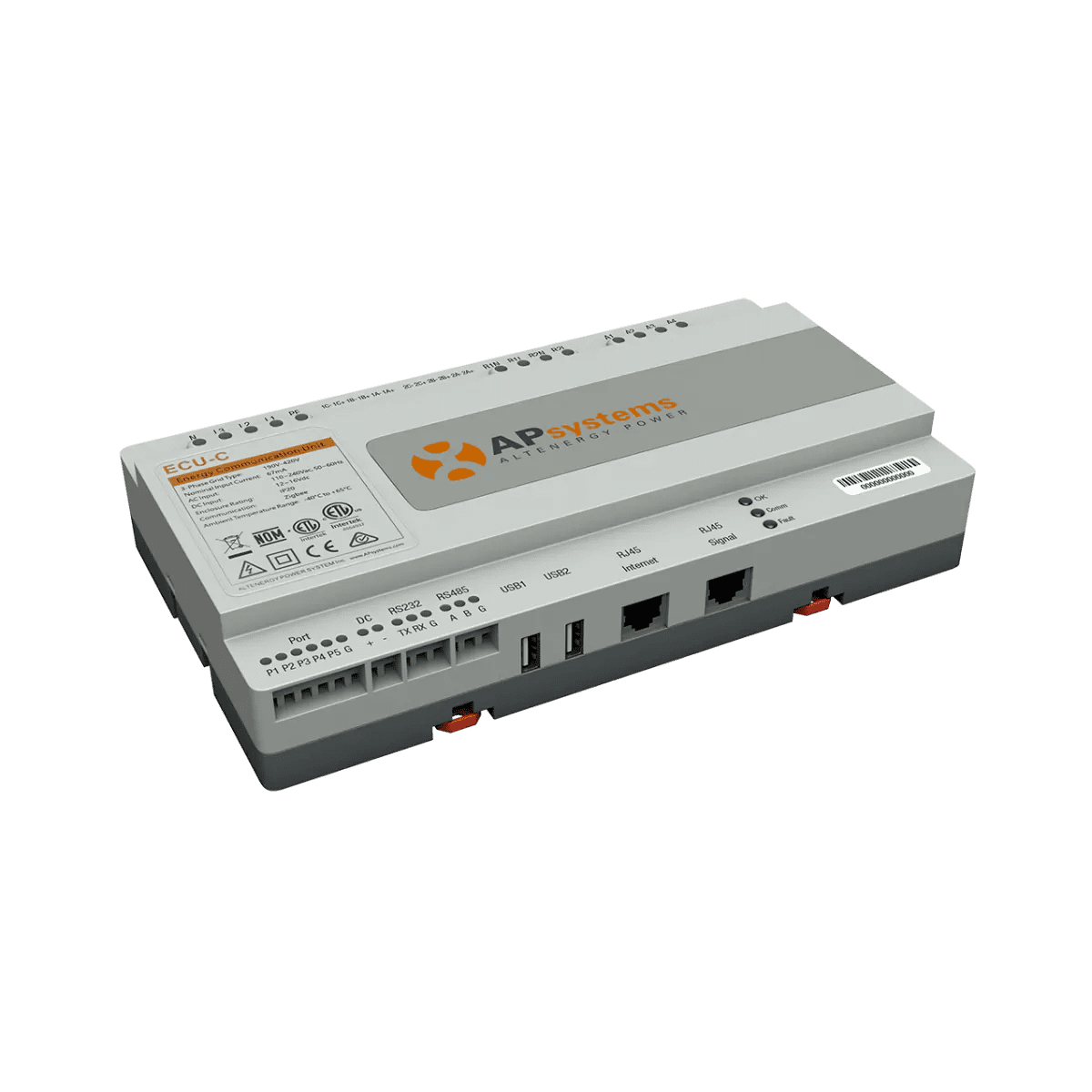Maximising self-consumption with a 3000W solar kit
Solar self-consumption is an increasingly popular solution for reducing electricity bills and improving energy independence. A well-designed solar kit, including a 3000W self-consumption solar kit, can maximise the use of the solar energy produced. In this article, we'll explore the benefits of these kits, their key components, and how they can transform your energy consumption.
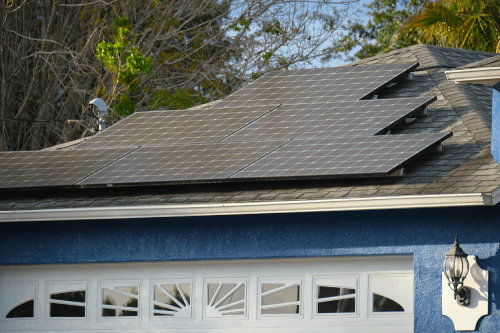
Why choose a 3000W self-consumption solar kit?
A 3000W self-consumption solar kit is ideal for homes and small businesses that want to reduce their dependence on the electricity grid and use more renewable energy. Here are just a few reasons why this type of kit is beneficial:
Lower electricity bills
A 3000W solar kit produces enough energy to supply a significant proportion of the average household's energy needs. By using the energy produced by your solar panels, you can significantly reduce your electricity bills. The reduction in energy costs can be significant, especially at a time of rising energy prices. What's more, the savings you make can be reinvested in other energy improvements or in the comfort of your home.
Energy independence
With a self-consumption solar kit, you become less dependent on traditional energy suppliers. This means you are better protected against fluctuations in electricity prices and power cuts. In the event of a power cut, a battery-powered system can continue to supply your home, offering invaluable peace of mind. What's more, by generating your own power, you're contributing to the decentralisation of the electricity grid, which can improve the overall energy resilience of your community.
Reduced environmental impact
By producing your own renewable energy, you're helping to reduce greenhouse gas emissions and protect the environment. It's an important step towards a more sustainable lifestyle. Every kilowatt-hour of solar electricity you use is one kilowatt-hour less of fossil electricity, reducing your carbon footprint. What's more, switching to solar power can inspire your neighbours and community to consider sustainable energy solutions, amplifying your positive impact on the environment.
Components of a 3000W self-consumption solar kit
Solar panels
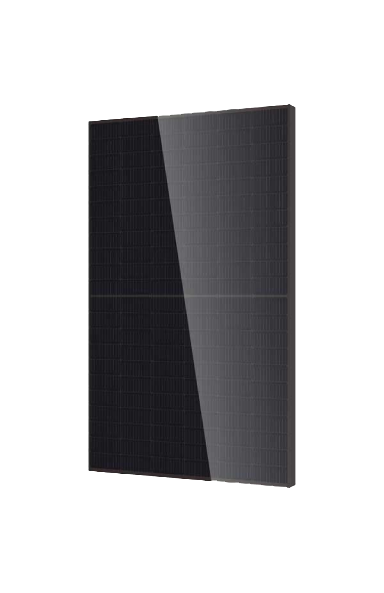

Installation and maintenance of a 3000W self-consumption solar kit
The installation and maintenance of a 3000W self-consumption solar kit are crucial steps in guaranteeing optimal operation and long-term durability of your solar system. To begin with, installation should be carried out by a qualified professional to ensure maximum performance and safety.
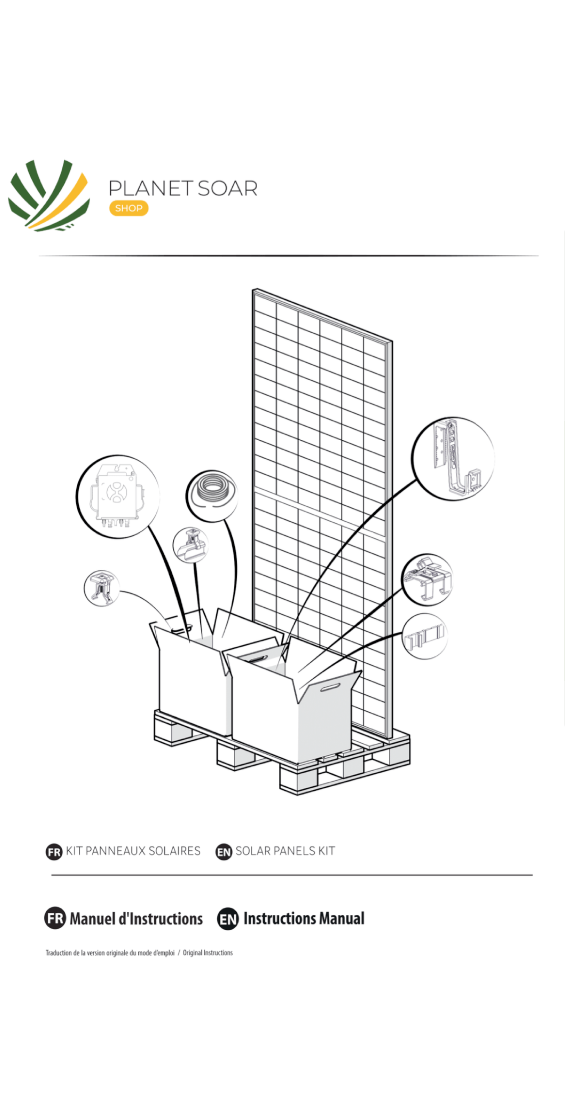
Installation steps
The installation of a 3000W self-consumption solar kit must be carried out by a qualified professional to guarantee optimum performance and the safety of the system. Here are the main steps:
- Site assessment: Analysis of the location to determine the optimum orientation and tilt of the solar panels. Accurate assessment maximises solar energy production and ensures safe installation.
- Mounting the panels: Installation of the panels on the roof or in an open space, oriented to capture the maximum amount of sunlight. This stage also includes securing the panels to withstand extreme weather conditions.
- Installing the inverter and batteries: Connecting the panels to the inverter and storage batteries. This step is crucial to ensure efficient energy conversion and optimal storage.
- Connection to the electricity grid: Integration of the solar system into the domestic electricity grid for immediate use of the energy produced. This stage may require specific authorisations and must be carried out in accordance with local regulations.
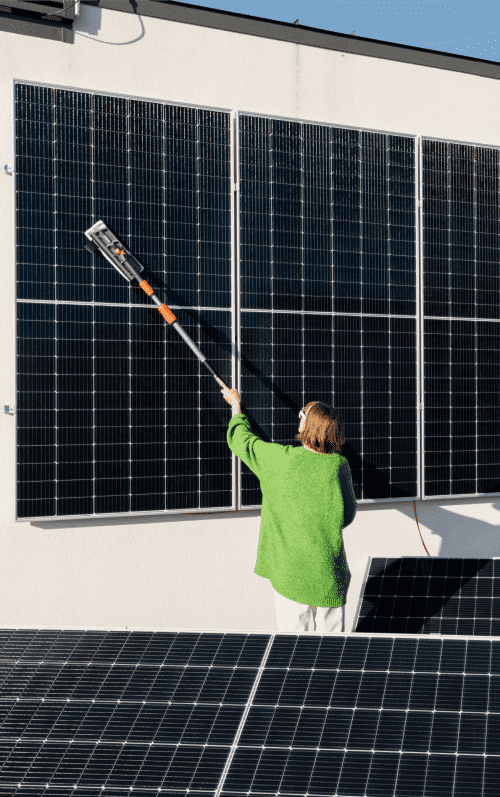
Maintenance
Regular maintenance is essential to ensure the longevity and efficiency of your solar kit. Here are a few tips:
- Cleaning the panels: Solar panels should be cleaned regularly to avoid the build-up of dust and debris that can reduce their efficiency. Use water and a soft cloth to avoid damaging the surface of the panels.
- Inspection of connections : Periodically check electrical connections for signs of wear or corrosion. Regular inspection can prevent malfunctions and extend the life of your system.
- Performance monitoring: Use a monitoring system to track energy production and quickly detect any potential problems. Advanced monitoring systems can send alerts if performance drops, allowing you to act quickly.
Advantages of a 3000W self-consumption solar kit with lithium battery
Superior storage capacity
Lithium batteries offer a higher energy density than lead-acid batteries, which means they can store more energy in a smaller space. This maximises the use of available space, making solar systems more practical for smaller installations. What's more, their greater storage capacity means you can use the stored energy for longer, reducing your dependence on the electricity grid.
Longer life
Lithium batteries have a longer lifespan, often in excess of 10 years, making them a more cost-effective long-term investment. They also require less maintenance, reducing servicing costs over the life of the system. The durability of lithium batteries is particularly advantageous in environments where temperature conditions can vary, as they are more resistant to temperature fluctuations.
Energy efficiency
Lithium batteries are more efficient in terms of charge and discharge cycles, making better use of the energy stored. This means you can extract more energy from each charge cycle, increasing the overall efficiency of your solar system. What's more, the increased efficiency of lithium batteries means additional savings on your electricity bills, making your investment even more profitable in the long term.
Case study: Using a 3000W self-consumption solar kit in a detached house
Let's imagine a detached house with an annual electricity consumption of 5000 kWh. By installing a 3000W self-consumption solar kit, this house can produce around 3500 kWh per year, covering 70% of its energy consumption.
Profitability study
The initial cost of a 3000W self-consumption solar kit with a lithium battery may seem high, but the savings made on electricity bills generally mean that the investment pays for itself in less than 10 years. What's more, tax incentives and government subsidies can considerably reduce the cost of installation. When these financial incentives are taken into account, the return on investment can be even quicker, making the solar solution affordable.
Frequently asked questions (FAQ)
- Which solar panel kit should I choose to plug into a 220V socket? For simple connection to a 220V socket, opt for a plug-and-play solar kit. These kits are designed for easy installation and offer an effective solution for reducing your electricity bills while using solar energy. Make sure you choose a kit with high-quality solar panels and a compatible inverter to maximise efficiency.
- What is the best solar panel kit? The best solar panel kit depends on your specific energy requirements and the location of your installation. However, solar kits with high-efficiency panels, such as those using Maxeon or PERC technology, are often the most recommended for their performance and durability.
- Which is the best self-consumption solar kit? For optimum self-consumption, a solar kit with high-efficiency panels and a high-performance inverter, such as solar kits with Huawei inverters and Voltec panels, is ideal. These kits maximise the use of the solar energy produced, reducing your dependence on the electricity grid.
- What is the best stand-alone solar kit? The best stand-alone solar kit is one that includes high-capacity batteries for energy storage, high-efficiency solar panels, and an inverter capable of managing loads. Stand-alone solar kits are ideal for areas without access to the electricity grid, offering a reliable and sustainable solution.’
- Which solar kit should I choose? The choice of solar kit depends on your energy needs, the location of your installation and your budget. Self-consumption solar kits are ideal for reducing electricity bills, while stand-alone solar kits are ideal for isolated sites. For optimum performance, choose a kit with quality components, such as Voltec panels and Huawei inverters.
Article by ;

